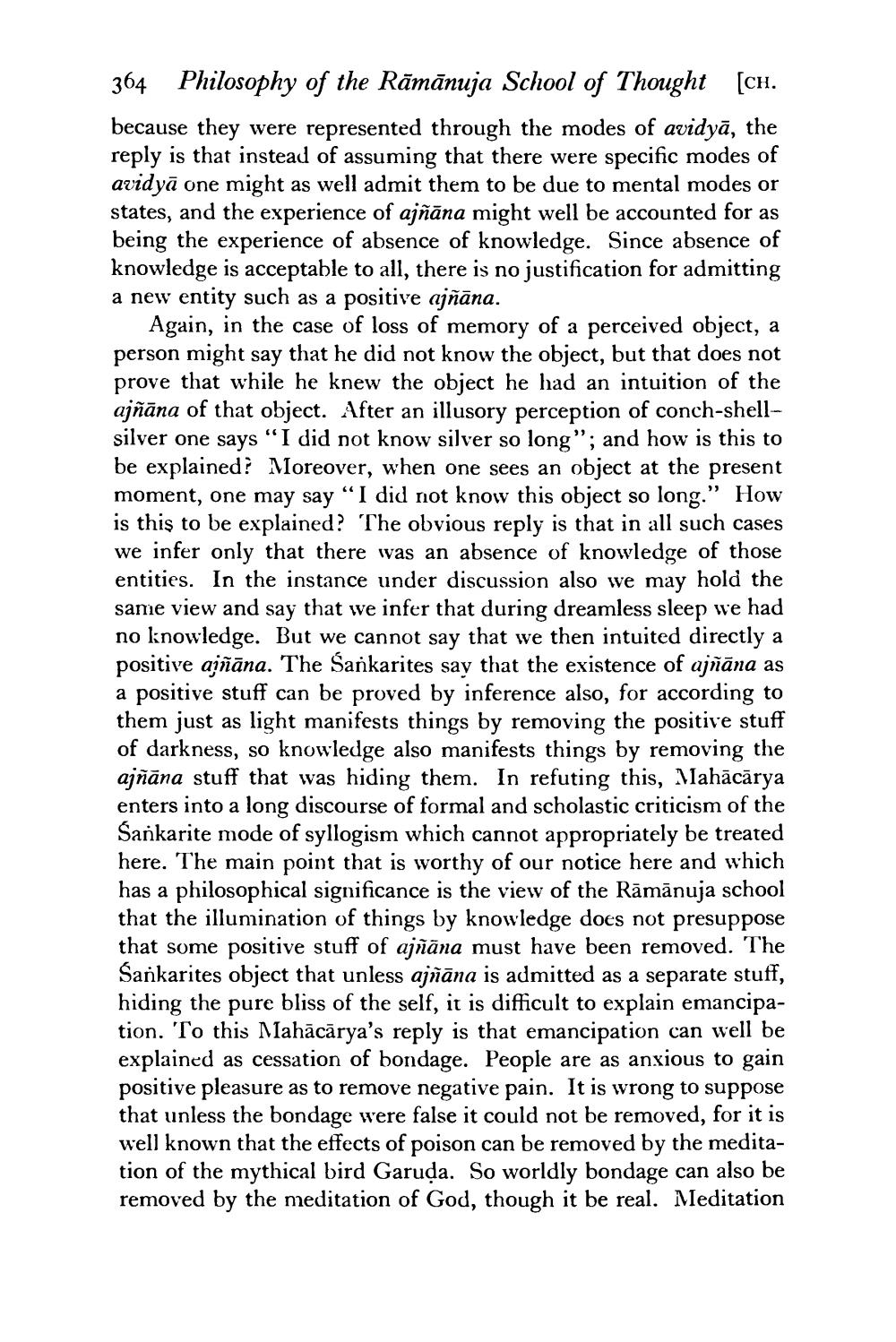________________
364
Philosophy of the Rāmānuja School of Thought [CH. because they were represented through the modes of avidya, the reply is that instead of assuming that there were specific modes of avidya one might as well admit them to be due to mental modes or states, and the experience of ajñāna might well be accounted for as being the experience of absence of knowledge. Since absence of knowledge is acceptable to all, there is no justification for admitting a new entity such as a positive ajñāna.
Again, in the case of loss of memory of a perceived object, a person might say that he did not know the object, but that does not prove that while he knew the object he had an intuition of the ajñāna of that object. After an illusory perception of conch-shellsilver one says "I did not know silver so long"; and how is this to be explained? Moreover, when one sees an object at the present moment, one may say "I did not know this object so long." How is this to be explained? The obvious reply is that in all such cases we infer only that there was an absence of knowledge of those entities. In the instance under discussion also we may hold the same view and say that we infer that during dreamless sleep we had no knowledge. But we cannot say that we then intuited directly a positive ajñāna. The Sankarites say that the existence of ajñāna as a positive stuff can be proved by inference also, for according to them just as light manifests things by removing the positive stuff of darkness, so knowledge also manifests things by removing the ajñāna stuff that was hiding them. In refuting this, Mahācārya enters into a long discourse of formal and scholastic criticism of the Sankarite mode of syllogism which cannot appropriately be treated here. The main point that is worthy of our notice here and which has a philosophical significance is the view of the Rāmānuja school that the illumination of things by knowledge does not presuppose that some positive stuff of ajñāna must have been removed. The Sankarites object that unless ajñāna is admitted as a separate stuff, hiding the pure bliss of the self, it is difficult to explain emancipation. To this Mahācārya's reply is that emancipation can well be explained as cessation of bondage. People are as anxious to gain positive pleasure as to remove negative pain. It is wrong to suppose that unless the bondage were false it could not be removed, for it is well known that the effects of poison can be removed by the meditation of the mythical bird Garuda. So worldly bondage can also be removed by the meditation of God, though it be real. Meditation




